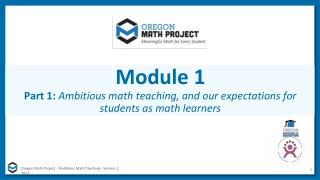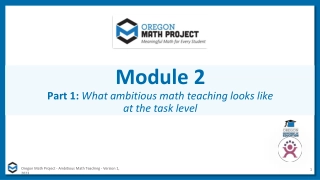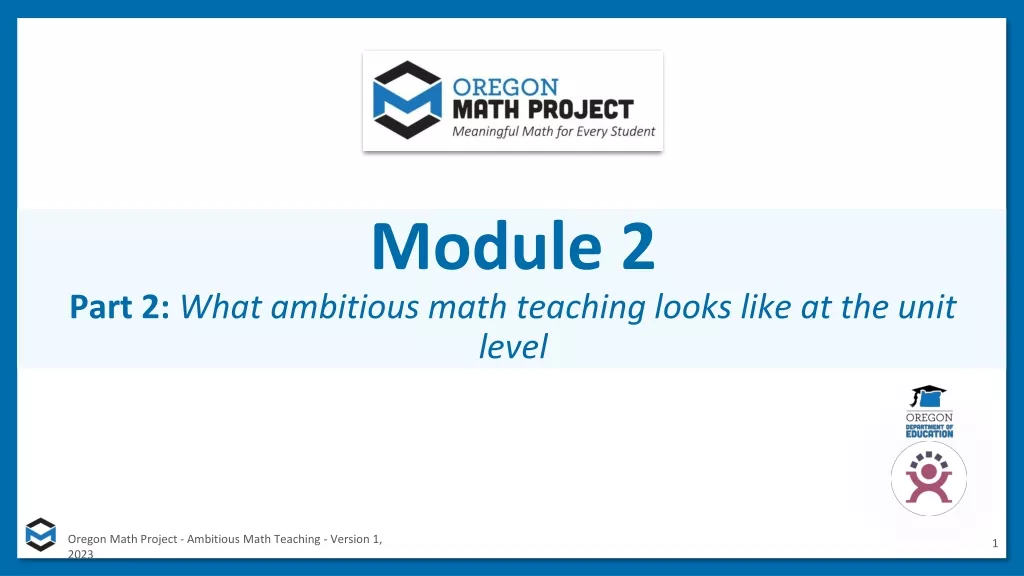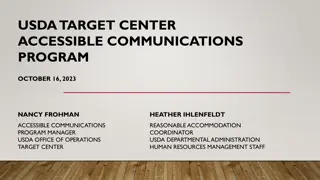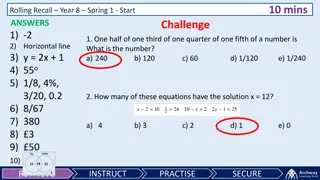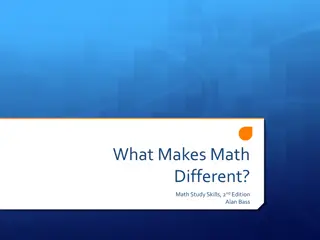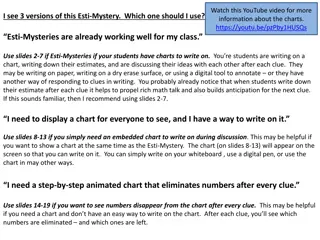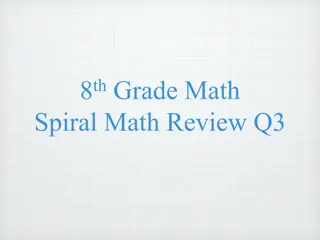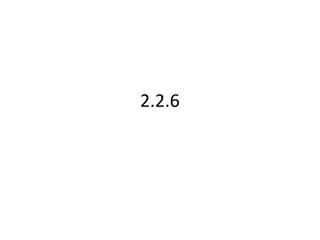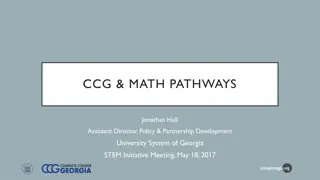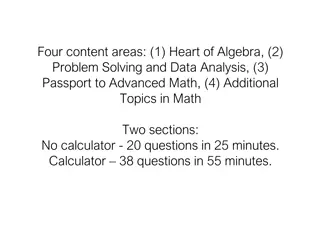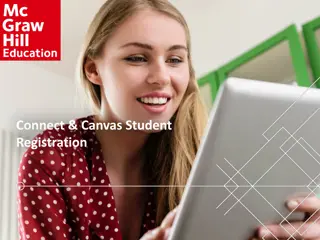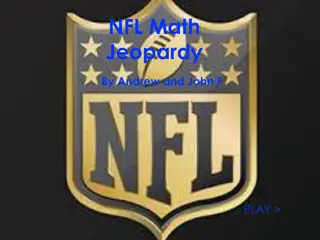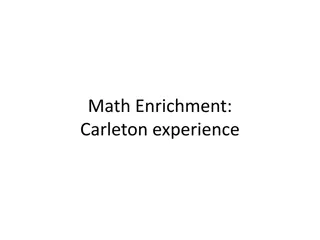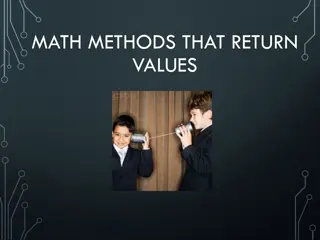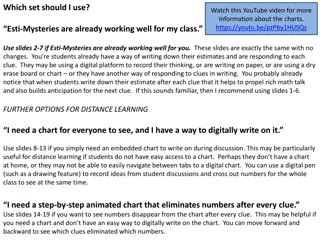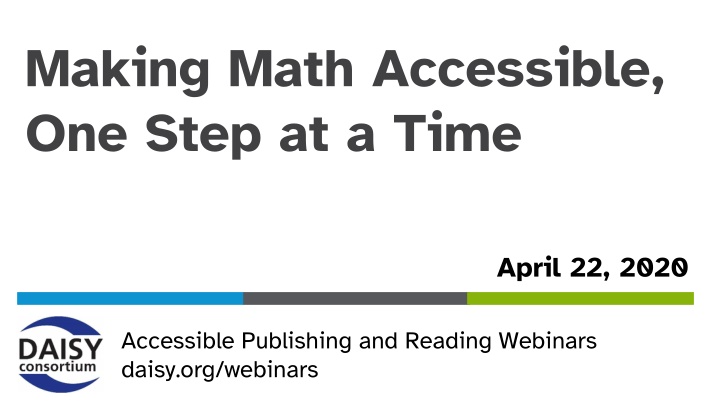
Supporting Students with Learning Disabilities in Math Webinar
Learn how to support students with learning disabilities in math through accessible teaching strategies, including developing number sense and using multi-modal formats. Discover the prevalence and impact of learning disabilities in education, as well as the challenges students face in learning math. Educators will also find insights on how to help these students succeed and improve their math skills through effective teaching methods.
Download Presentation

Please find below an Image/Link to download the presentation.
The content on the website is provided AS IS for your information and personal use only. It may not be sold, licensed, or shared on other websites without obtaining consent from the author. If you encounter any issues during the download, it is possible that the publisher has removed the file from their server.
You are allowed to download the files provided on this website for personal or commercial use, subject to the condition that they are used lawfully. All files are the property of their respective owners.
The content on the website is provided AS IS for your information and personal use only. It may not be sold, licensed, or shared on other websites without obtaining consent from the author.
E N D
Presentation Transcript
Making Math Accessible, One Step at a Time April 22, 2020 Accessible Publishing and Reading Webinars daisy.org/webinars
Your panel Host: Richard Orme Alex Cabral Abi James Matt Nupen
Overview Setting the scene Learn how to support students with learning disabilities by Showing work Developing number sense Teaching concepts in multi-modal formats Q & A
Prevalence and impact 1 in 5 children have specific disabilities around learning, processing and attention (NCLD, BDA) These students are significantly more likely than their peers to repeat a grade or drop out of school. Impact of learning disabilities can continue into college with lower number of disabled students studying STEM subjects.
Struggles with learning math Good maths skills requires executive functioning skills in particular Working memory Organisation Reading skills Attention Spatial and sequential processing skill Key developmental math concepts rely on solid number sense, such as the coexistence between parts of a number and its whole, which is necessary for understanding abstract division, ratios, and fractions.
Many learners struggle to read math Accessible maths that provides support with decoding can help with problem solving and accuracy But limited assistive technology support H x equals x 2 plus 5 slash x dash 1 H of x, equals, x squared plus 5, over, x minus 1 H of x, equals, start fraction, x power of 2, plus 5, all over, x minus 1, end fraction
Educators Educators are often underprepared to help these students succeed Parents, teachers, and tutors may not be aware of the different tools and strategies Hard to diagnose early on, leading parents and teachers to view symptoms as laziness or misbehavior
Showing Work One of the most meaningful ways to improve student learning is through day-to-day formative assessment. However, most online math edtiors don't allow students to show work
Showing Work: Tools https://mathshare.benetech.org Focus on working step-by-step through solutions Free, open-source program
Number Sense Help by working with students interactively on concepts This can be done using real world examples It is also aided by focusing on the process rather than solution
Number Sense: Tools PhET Simulations: Ohm's Law
Multi-Modal: Learning Helps students consolidate what they've learned Necessary for many students with learning disabilities to understand concepts in a way that works for them Supporting visual, auditory, and tactile/kinesthetic learning
Multi-Modal: Story Students with severe math anxiety can freeze when faced with numbers and complex math problems Support other skills, like drawing and art, to help find patterns
Multi-Modal: Tools Mathshare: sketchpad example Desmos examples: Parabolas Sound Demo
Conclusion Support students by using accessible math tools to help them show work, develop their number sense, and use different modalities to solve problems. Tools: Mathshare, PhET, Desmos Contact Info: Alex Cabral (alexc@benetech.org) Matt Nupen (mattn@benetech.org) Abi James (abi@assistivelearning.co.uk)
Contact information Abi James abi@assistivelearning.co.uk Alex Cabral alexc@benetech.org Matt Nupen mattn@benetech.org
Wrap up Webinar video, slide deck and links to resources will be posted at: daisy.org/webinars Coming up: April 29, 2020 Telling The Story: Better Accessibility Statements with ASPIRE May 6, 2020 Publishing, accessibility, W3C standards where are we and how did we get here? May 13, 2020 Easy access to books and articles through a smart speaker

